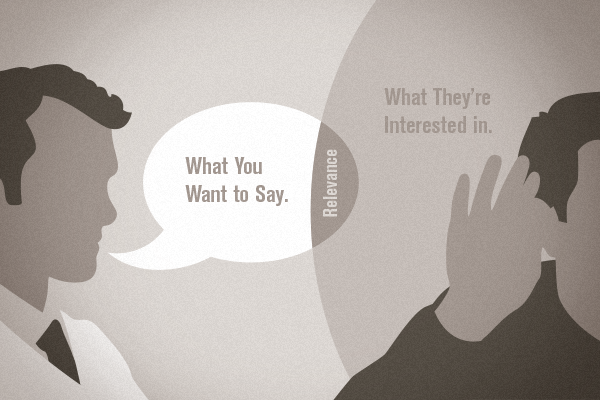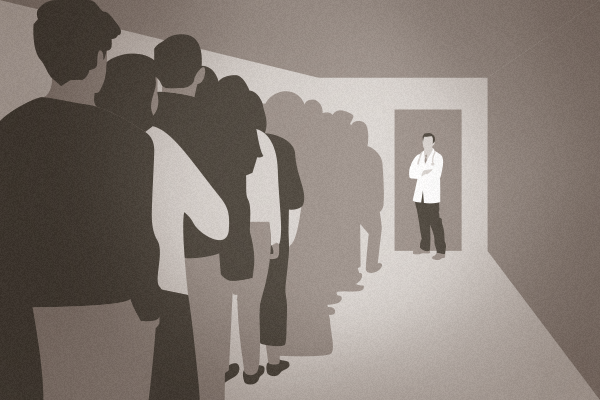That’s worth repeating: 85% of diagnoses can be made just by listening to the patient.
It’s clear cut: When doctors do not have enough time to listen the result is that they do not listen.
MedLion Management, Inc. announced today that they will be using Helpouts by Google to offer telelmedicine services to its patients. This is the type of innovation we expect from a national leader in the movement to improve Direct Primary Care. Great job, MedLion.
If you’re a patient dealing with insurance, Stephen C. Schimpff has something to tell you. You aren’t really your physician’s customer. That’s because the insurer will decide whether and how much to pay the physician after they’ve seen you. You’re largely a bystander in the relationship, he says. The doctor’s customer is actually the insurer.
Dr. Sandeep Jauhar, M.D. posted a powerful blog entry on the New York Times website. He describes the ideal doctor-patient relationship, a place where intimacy transpires and information is exchanged openly and honestly. But he adds a caveat: “That is seldom the reality… Deception in the doctor-patient relationship is more common than we’d like to believe.”
We’re big fans of technology here at Atlas MD. We bring our iPads into the examination room. We field phone calls from our patients. We’ve coordinated prescriptions and medications with pharmacies and then texted timely information to patients in need. Dr. Doug has literally brought tears of joy to a woman’s eyes for such an effort. So you’d think that helping people take their pills would be the perfect thing for a mobile app to do, right?
Well, there plenty of apps offering this service on the app store. But are they getting people to take their pills?
Kevin Pho knows how to craft a headline. He says on Kevin MD, that patient satisfaction is all the rage, and that it might actually kill.
We had to share this harrowing story of Dr. Annie Brewster, who is both a physician and patient. See, she suffers from MS, and in dealing with her condition, she’s gained amazing insight into what it’s like on the other side of the gurney. She explains:
“Being on the patient side has changed me as a doctor. Now, I see more clearly that no medical decision is simple. While my job is to make recommendations to patients based on my medical knowledge, there is no one answer.”
According to Dr. Brewster, what is ultimately “right” is based on a multitude of factors and we may not have the precise answer within our reach. Now she tells her patients when she suggests any treatment, “You are in charge.” Being as we were just reading about a healthcare future that’s been Walmart-ized and might have machines dictating our treatments, this seems especially relevant. What do you think happens if primary care physicians are to be replaced by software algorithms and nurses? Would patients be less stubborn? Would they be even less likely to listen to their own intuition?
Again, these are ambiguous, difficult issues to discern. But regardless, it’s humanizing to remember that in spite of all our education, training and experience, we are not the final call. Really, it’s up to the patient to trust us and follow a treatment plan that works for them. Our job is to take the time to make sure we’re offering the most sound advice within our own reason and skill set.
We came across an article from The Wall street Journal addressing patient communication. It’s worth reminding our doctors: evidence has mounted that good communication helps patients stick to recommended treatments and manage chronic diseases. It also improves outcomes in the management of diabetes, hypertension and cancer. As primary care physicians in DPC, we’re not always dealing with conditions this serious. However, we’re still prescribing medications. Our ability to be clearly dictate when to take them, and why we’re recommending our patient take them MATTERS.
In a separate but related issue, we mentioned last week that poor communication is more likely to get you sued than making mistakes. Evidently patients don’t want to sue a doctor they like. Although they are willing to file lawsuits against the unfriendly, un-empathetic doctor who harried them through their visit. The WSJ points this out as well, saying “lack of communication, after all, isn’t just frustrating for patients. It can hurt the quality of care, drive up costs and increase the risk of lawsuits. And under new Medicare rules, providers won’t get as much money if they rack up poor patient-satisfaction scores or too many preventable readmissions.” Thankfully, in our line of work this last sentence need not apply. We can’t begin to express how glad we are to NOT have to fill out ICD-10 codes or have our patients pencil in score sheets regarding our service.

Have you checked out Mind The Gap yet? It’s a blog written by Stephen Wilkins, MPH. He’s interested in physician-patient communication that’s both personal and professional. His most recent post (Via Health Works Collective) addresses the issue of relevancy, something that you might immediately think, that? Oh, I know that. But the truth is, if you’ve been a healthcare professional running through what Michael Tetreault called the “hamster wheel” then you might have developed some bad communication habits.

Dr. Doug and Dr. Josh have been spreading the gospel of direct care on Fox News, late night podcasts and CNN. But Concierge Medicine Today (CMT) has some data showing the downside in concierge medicine. They’re finding that the number of patients seeking concierge medical care exceeds the actual number of primary care and family practice doctors on the market.
“Despite what we hear in the media about the increase in concierge and private-pay physicians growing across America, there are simply not enough of these [concierge-style, direct care or membership medicine-style] physicians in the U.S. to meet the current demand,” says Michael Tetreault, Editor-In-Chief of Concierge Medicine Today “At the end of the day, the marketplace is still falling short.”